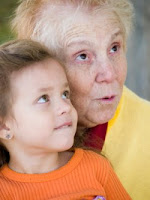Understanding the Mind of a Child on the Autism Spectrum
"My 7-year-old daughter was recently diagnosed with high functioning autism. This is all so new to me. How can I understand the way she thinks? We are definitely not on the same page much of the time!" Kids with High-Functioning Autism (HFA) may have underdeveloped areas in the brain that cause problems in the following areas: understanding the thoughts and feelings of others learning appropriate social skills and responses focusing on “the real world” as opposed to becoming absorbed in their own thoughts and obsessions communication Children and teens on the autism spectrum are often extremely literal in their interpretation of others’ conversations (e.g., they may wonder if cats and dogs are really raining down or think there are two suns when someone talks about two sons). They are unable to recognize differences in speech tone, pitch, and accent that alter the meaning of what others’ say. Your daughter may not understand a joke or take a sarcastic comment lit


